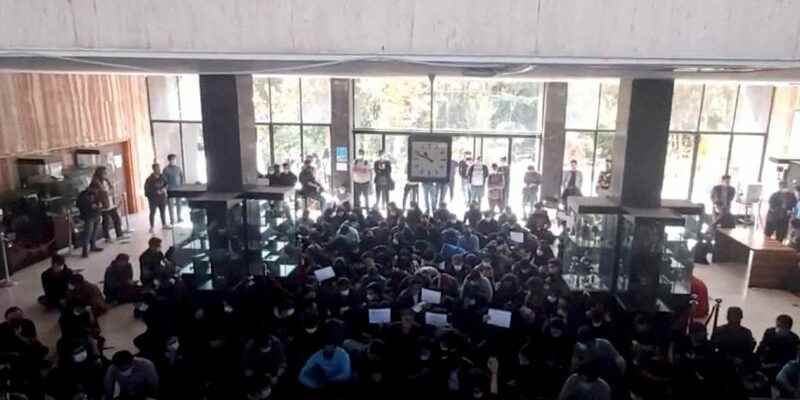by Parisa Hafezi
DUBAI (Reuters) – Security forces, including riot police, were deployed in force in several major Iranian cities on Wednesday ahead of rallies in tribute to Mahsa Amini, 40 days after the death of the 22-year-old woman. years in detention after her arrest for wearing a veil deemed illegal.
According to several witnesses, many security force agents were deployed in Saqez, birthplace of Mahsa Amini, in Iranian Kurdistan, in the north-west of the country, but also in the capital Tehran, or in the cities of Tabriz and Rasht, also in the north of the country.
All schools and universities in the province of Iranian Kurdistan were also closed on Wednesday “due to a wave of influenza”, reported the official Iranian media.
Human rights groups said security forces had asked Mahsa Amini’s family not to hold a memorial procession after the traditional 40-day mourning period.
In Saqez, police and bassidji militiamen (volunteers who constitute a paramilitary force dependent on the elite body of the Revolutionary Guards-Editor’s note) were present in large numbers to prevent access to the cemetery where Mahsa Amini is buried, reported a witness present. on the spot.
Another witness, who spoke of “dozens and dozens” of members of the security forces and Bassidji, stressed that people had defied warnings and were going to the cemetery.
Videos circulating on social media, the authenticity of which Reuters could not verify, showed members of the security forces blocking access roads to Saqez, as well as people chanting “death to (Ali) Khamenei”, the Supreme Guide of the Revolution, in the city cemetery.
The mid-September death in custody of Mahsa Amini sparked a wave of protests, which have continued despite an increasingly deadly crackdown, with at least 250 dead and thousands arrested according to human rights groups. ‘man.
This protest movement against Iranian religious authorities is one of the largest since the Islamic revolution of 1979.
This movement, notably fueled so far by Iranian youth – with strikes in dozens of universities – could still gain momentum with the end of the 40-day period of mourning.
According to a video published by a widely followed Iranian activist, workers at a Tehran refinery went on strike, but the official Irna news agency relayed the denial of a manager of this refinery.
(Written by Parisa Hafezi, French version Myriam Rivet, edited by Nicolas Delame)
